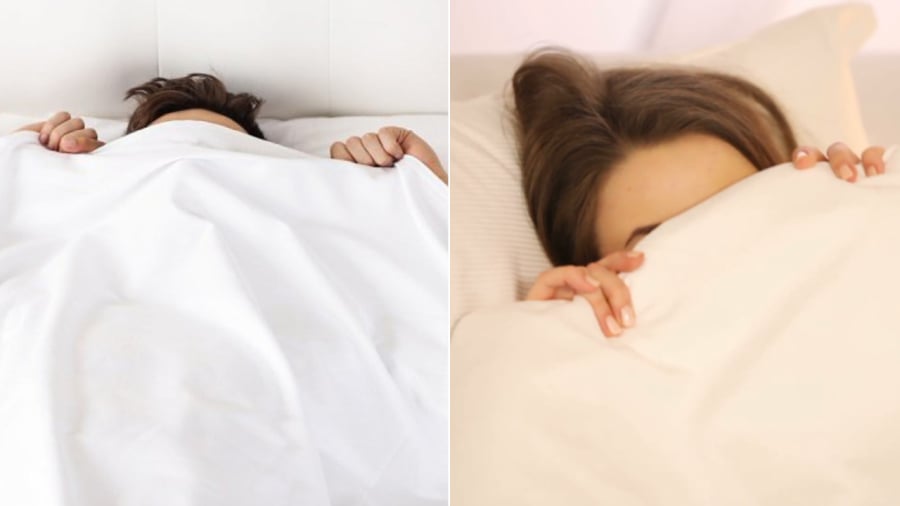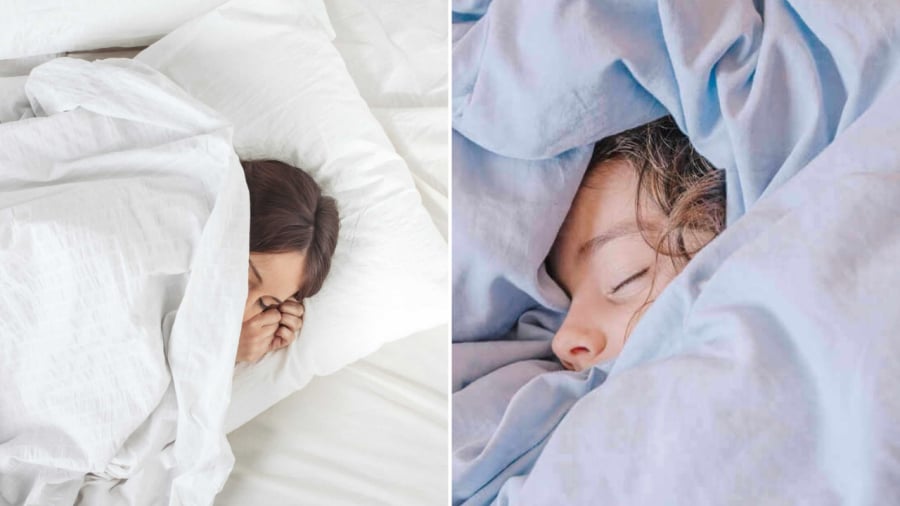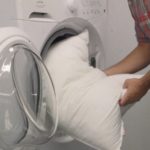Infection
The blankets you use every day are not always washed regularly. Therefore, they can accumulate a lot of dirt and bacteria. Covering your head tightly will make you breathe in the dirt and bacteria into your body.
Even new blankets and sheets are not guaranteed to be safe because they can be contaminated with dust and chemicals from the manufacturing process.
Causes temporary sleep apnea
This is a condition where the patient experiences a temporary pause in breathing while sleeping. Covering your head tightly while sleeping will restrict the airflow through your mouth and nose. This is one of the causes of sleep apnea. If you are at risk of developing this condition, it is best to train yourself to give up the habit of covering your head tightly.

Causes difficulty sleeping
Covering your head tightly can create a warm feeling on cold winter days, but it does not make you sleep better. The reason is that when you cover your head tightly, you will have difficulty breathing properly, even sweating more and having to wake up in the middle of the night. When your body sweats all night, it can lead to clogged pores on the face and body, resulting in acne.
Causes brain damage
Covering your head tightly while sleeping can cause brain damage. You may think that covering your head while sleeping is nothing special, but in fact, it restricts the flow of air through your mouth and nose. When that happens, your brain will not receive enough fresh air necessary to function properly. Studies have shown that 23% of cognitive decline is due to the long-term habit of covering the head tightly while sleeping.
Covering your head while sleeping will increase the level of CO2. A study on O2 and CO2 levels when covering the head tightly while sleeping has been conducted and the results show: When participants cover their heads tightly for 10 minutes, the O2 level decreases from 18% to 20.9%, and the CO2 level increases from 0.4% to 2%.
This can lead to less oxygen flow to the brain, causing dizziness upon waking up. Additionally, people with congestive heart failure or heart-related conditions may face issues such as arrhythmia, oxygen deficiency.

Suffocation
Suffocation is one of the risks that can occur when covering your head tightly while sleeping, especially for people with asthma, sleep apnea, and heart disease. The reason is that these individuals will have to constantly recycle the air they just exhaled, leading to a significant decrease in the supply of oxygen to the body compared to normal activity levels. The lower the oxygen level, the higher the risk of suffocation.





































